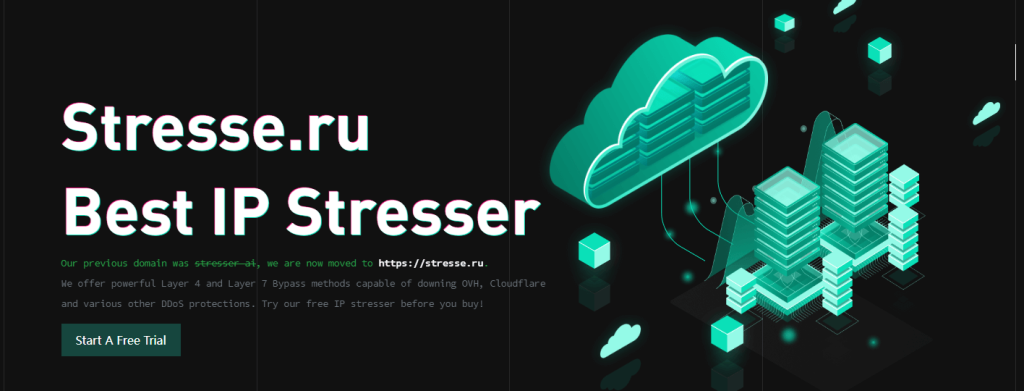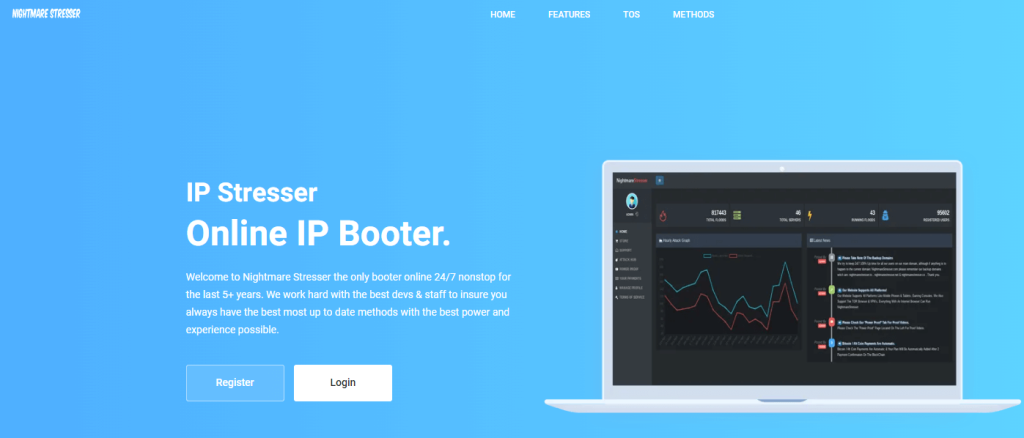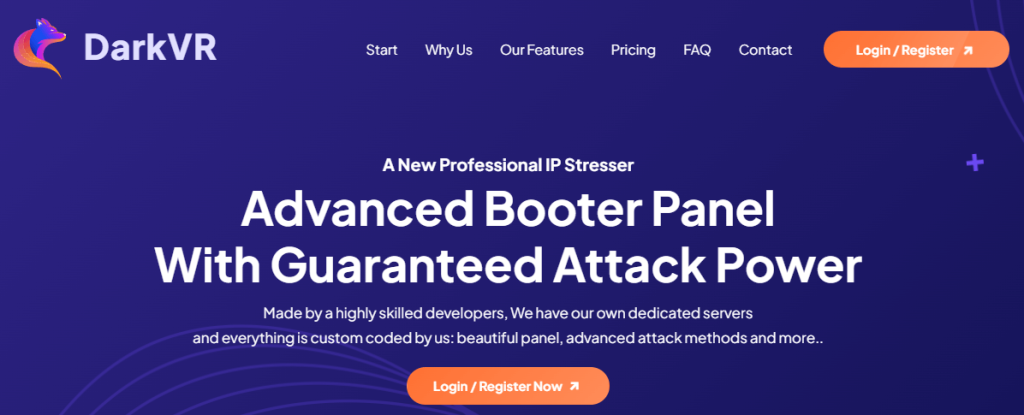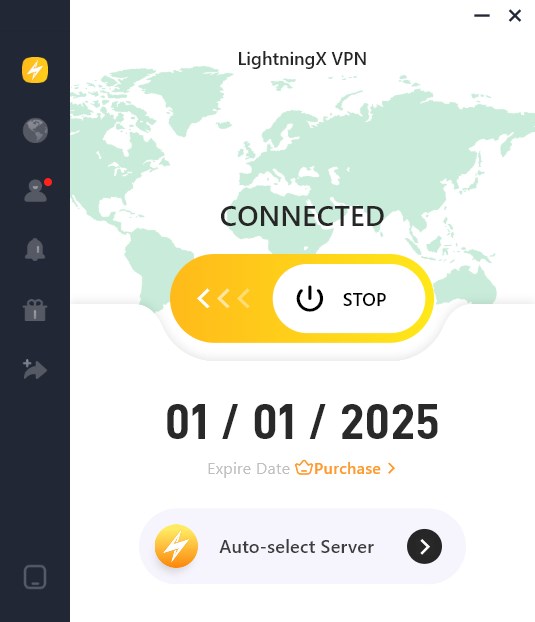An IP booter or IP stresser is a tool designed to test the resilience of your network or server. With the internet industry boosting, ensuring robust online security is crucial, especially against DDoS (Distributed Denial-of-Service) attacks.
These attacks can overwhelm your system, making it critical to determine its strength. A strong IP booter or IP stresser helps evaluate your network’s capability to withstand such threats.
This post introduces the 6 best IP booter/stresser options, the bad results of their misuse, and how to protect against harmful booter/stresser attacks.
What’s the Difference and Relationship Between IP Booter and IP Stresser?
The terms IP Booter and IP Stresser refer to tools used for network stress testing and DDoS (Distributed Denial of Service) attacks, but they have distinct differences and relationships.
Differences:
1. Different Purposes
- IP Stresser: Mainly used for legal network testing. It helps check if a network or server can handle a lot of traffic.
- IP Booter: Primarily used for malicious purposes, aiming to make a target server or network stop working.
2. Legality
- IP Stresser: It can be legal if used with permission for testing; using it without permission is illegal.
- IP Booter: Generally considered illegal because it is often used to attack others.
3. User Base
- IP Stresser: Used by network administrators, security professionals, and developers for testing and improving security.
- IP Booter: Often used by individuals with malicious intentions, such as hackers or those seeking to avenge competitors.
Relationships
- Technical similarities: Both tools may use similar techniques to generate traffic, such as sending packets to a target IP.
- Overlap in functionality: While an IP Stresser can be misused as an IP Booter, the intention behind their usage typically distinguishes them. An IP Stresser can be legitimate, whereas an IP Booter is inherently malicious.
- Tool development: Many tools may advertise as stress testing solutions but can be repurposed for DDoS attacks. This blurs the lines between the two.
6 Best IP Booter & IP Stresser for Network Testing
Here are 6 IP stresser options. Use it legally!
1. Paessler (PRTG Network Monitor)
Paessler’s PRTG Network Monitor is a comprehensive tool designed for real-time network monitoring. It tracks performance metrics across various network devices, servers, and applications.

Price:
PRTG 500: Start small, upgrade later, $2,149 per year
PRTG 1000: Small & medium environments, $3,899 per year
PRTG 5000: Large environments, $14,199 per year
Pros:
- Comprehensive monitoring covers a wide array of devices and services.
- Configurable alerts to address potential issues proactively.
- Intuitive dashboards and visualizations.
- Suitable for networks of all sizes.
Cons:
Cost can become expensive with many sensors.
2. SolarWinds
SolarWinds offers a suite of network management tools, including Network Performance Monitor (NPM) for real-time network monitoring and alerting.

Price: Email link to trial with full function for 14 days; Starts at $1901.
Pros:
- A broad range of monitoring and management tools.
- Use the traffic generator tool to observe how bandwidth performs in real conditions.
- Suitable for both small and large enterprises.
- Customizable dashboards tailor views and reports to your needs.
Cons:
Setup and customization may be intricate.
3. Stresse.ru
Stresser.ru is known for its DDoS stress testing services, offering powerful Layer 4 and Layer 7 bypass methods. It simulates high traffic to test a system’s resilience against attacks.

Price:
Free trial
Basic: €81.65 per month, 1 simultaneous attack (€ 81.65 each).
Advanced: €225.35 per month, 3 Simultaneous Attacks (€ 75.12 each).
EXPERT: €365.15 per month, 5 Simultaneous Attacks (€ 73.03 each).
Pros:
- Can test any type of target, IP, website, home connection, server, and database.
- Sends massive amounts of bandwidth to the target, making it offline instantly.
- Could bypass different DDoS protections such as DDos-Guard and OVH.
- 86,400 Seconds Maximum Attack Time.
Cons:
Primarily focused on stress testing rather than everyday monitoring.
4. Nightmare Stresser
Nightmare Stresser is a tool used for conducting DDoS attacks to test network resilience. It is often used by attackers but can be employed for legitimate stress testing with proper authorization.

Price:
basic: €44.99, 2 concurrent attacks for 3600 seconds boot time.
Advanced: €99.99, 3 concurrent attacks for 7500 seconds boot time.
Pros:
- Accessible for all devices, ranging from phones to game consoles, and even smart TVs.
- Anonymous service ensures that all attacks will not be traced.
- Paid users are available to the advanced layer 4 and layer 7 hubs.
- You can pay via Bitcoin, Ethereum, and Anonymous XMR.
Cons:
No free trial.
5. DarkVR
DarkVR is a tool designed for stress testing and simulating DDoS attacks. It helps users evaluate the resilience of their network infrastructure by mimicking high-traffic scenarios to identify weaknesses.

Price:
$50 for basic service, 2 slots
€ 100 for advanced service, 4 slots.
Pros:
- Provides realistic stress testing by simulating large volumes of traffic to test network attacks.
- Allows users to set up various types of attacks to assess different aspects of network security.
- One of the most secure tools. All traces will be deleted automatically.
Cons:
Unauthorized use can lead to legal consequences and ethical issues.
6. STRESSTHEM
STRESSTHEM is designed for conducting stress tests on servers and networks, assessing how systems cope with excessive load.

Price:
Rapid: $10, 1 concurrents, 300 boot time.
Miracle: $30, 2 concurrents, 600 boot time.
Hurricane: $70, 3 concurrents, 2000 boot time.
Pros:
- Variety of stress tests: Offers different types of load simulations.
- Effective performance testing: Useful for understanding system capacity.
- Guaranteed anonymity with secure payments
Cons:
Potential for misuse: Like other stress testing tools, it must be used responsibly.
Consequences of IP Booter and IP Stresser Illegal Use
Misuse like DDoS attacks of IP Booter and IP Stresser will lead to severe results.
Criminal Charges
Engaging in a DDoS attack can lead to criminal charges. Many countries have specific laws addressing cyber-attacks and unauthorized access to computer systems.
Civil Penalties
Victims of DDoS attacks may also seek civil damages through lawsuits. This can result in significant financial penalties for the attacker.
Damage to Reputation
Being involved in illegal activities like using an IP Booter can severely damage an individual’s or organization’s reputation and career prospects.
How to Protect Against Harmful IP Booters
If you run an online service or network, protecting against IP Booters and DDoS attacks is crucial. Here are some strategies to enhance your defenses:
Use DDoS Protection Services
Many companies offer specialized DDoS protection services that can detect and mitigate attack traffic before it reaches your servers.
Monitor Traffic
Regularly monitor your network traffic to identify unusual patterns or spikes that could indicate a DDoS attack in progress.
Use a VPN
Properly subscribing to the best VPN service can help block malicious traffic and protect your network from being crushed.
Tips:
LightningX VPN can hide your real IP address with a virtual one. It lowers the possibility of being tracked by attackers. Plus, LightningX VPN provides advanced encryption technology such as encryption algorithms like AES-256-GCM, protecting your data from being intercepted. It’s very safe to use! Download it to protect your online security!

Conclusion
While IP Booters and IP stressers can be used for useful testing or monitoring, their malicious use is illegal and unethical. This post introduces best IP booter to you It’s important to pay attention to the right use of them and to take active measures to protect against potential attacks like DDoS attacks. Subscribe to VPN and enhance your IP security.
















